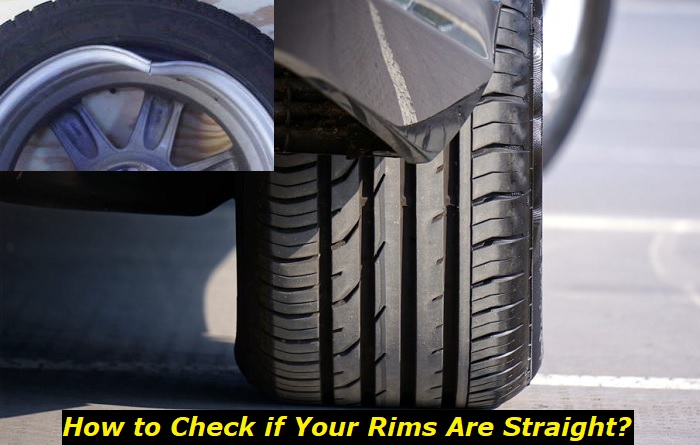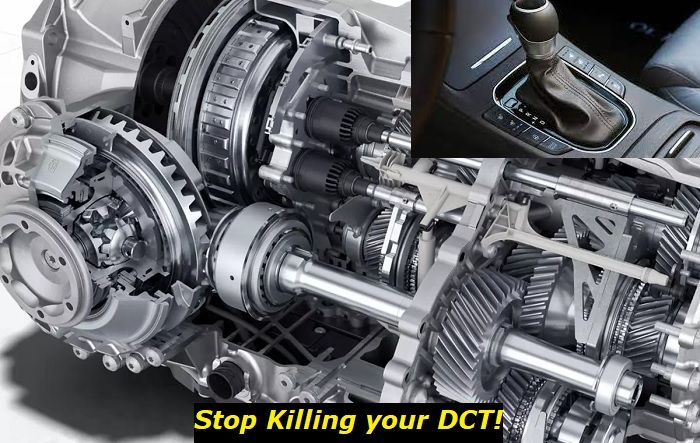Every driver is bound to bend a tire rim sooner or later. It is likely sooner for those who often drive over rough, challenging terrain or poorly maintained roads. Unfortunately, it is not easy to notice that you are driving on bent wheels.
You will not see any warning lights popping up on your dashboard to hint that your rims need to be in shape. You are also unlikely to feel the effect of bent rims when driving. Just because you are unlikely to feel the impact of bent rims does not mean they are harmless.

This article will furnish you with all the information you need to know about bent rims, including:
- What causes tire rims to bend
- How to know whether your tire rims are bent
- How to check if your rims are straight
- Can you fix a bent rim without professional help
- The dangers of driving on tires that have bent rims
Can I Drive with a Bent Tire Rim?
Bent tire rims are dangerous because they can pinch your tires and cause them to pop. It is not advisable to drive your car once while it is suffering a bent rim. The longer the damaged rim remains unrepaired, the more damage it will likely cause. Damaged rims create vibrations that impact your driving patterns causing damage to your healthy tires and axles and disrupting your driveshaft.
You should only drive as far as you have to on a bent rim for several reasons. Most significant is the loss of control of your vehicle which makes you susceptible to accidents. Next are the additional expenses you will face after delaying the repair or replacing a bent tire rim.
What Causes Your Tire Rims to Bend?
While road conditions are the most common cause of bent tire rims, innocuous factors are at play.
- Corroded Rims
Corrosion is one of the most commonly overlooked causes of bent tire rims. While corrosion occurs naturally, certain environmental factors hasten the process. Some elements that speed up the corrosion of your tire rims include road salt, excessive humidity, contaminants, and harsh chemicals in cleaners.
Even if you manage to keep your rims away from these conditions, your car is still vulnerable. Over time, the factory coating that covers your edges will begin to peel off and expose some sections to weather damage. The protective coating goes a long way in protecting the metal underneath from the key corrosion elements, i.e., air and moisture.
Corrosion makes your rims much weaker and thus vulnerable to bending upon impact. Once your rims begin to rust, they are a step away from bending. Though poorly paved roads and potholes increase the risk of bending, a corroded rim may bend on the slightest impact, e.g., absorbing the impact after a speed bump. Replace rusty rims as soon as possible to avoid bending.
- Low-Quality Tires
Diligent drivers know that even high-quality tires need to be replaced after a while. Purchasing low-quality tires or pushing good tires past their limit can result in bending the rim. Whenever you take your car in for servicing, be sure to inquire about the condition of your wheels. A professional will be sure to let you know if the time has come to throw out the old ones.
Equally important is maintaining the correct tire pressure. Drivers who fail to inflate their tires properly are much more likely to experience bent rims. Whether you fill up your tires at home or the gas station, ensure the pressure is appropriate. Low tire pressure places your rims in contact with the road as you drive. This contact makes it more likely for the rims to bend due to damaging impact from bumps, ruts, or rocks on the road.
- Poor Driving Habits
If you are the impatient driver who drives over curbs to parallel park along the sidewalk, it's about time you stopped. Do it for the sake of your rims. The same goes for drivers who fly over bumps without any pause. Being mindful when dealing with speed bumps, parking blocks, and curbs will save you the trouble of wondering how to fix your bent rims.
Common Signs of a Bent Tire Rim
Anyone wondering how to catch on to a broken tire rim without an error code or warning light will find this section extremely helpful. While visual inspection may help, it can only detect the protrusion and dents on areas of the rim not covered by the tire. Hubcaps also make it difficult to observe signs of damage.
Even though inspecting your rims is easy to tell whether they are bent, drivers are wise to look out for the more subtle signs.
- You Often Suffer Flat Tires
If your tires are prone to deflating more often than not, chances are high that you may have a bent rim. Tires usually lose about five pounds of air monthly, so you have to fill up your tires every now and then. If your tires need air more than twice a month, your rims are likely bent.
Drivers facing this challenge are advised to take their cars for professional diagnosis should they fail to locate the damage in their rims. While some dents are too tiny for you to observe, they can still wreak havoc on your tires.
- Your Steering Wheel is Shaky
When your rims bend, they will cause your tires to have uneven contact with the road. The irregular contact sends vibrations through your steering column to the wheel. Drivers with bent rims are likely to experience vibrations when accelerating. The vibrations may be mild or jarring, depending on the extent of the rim damage.
If the vibrations are most apparent on the front of your seat, one or both of your front tires are most likely to blame. Vibrations that are stronger in the rear of your front seat may be caused by rim damage in your rear tires. Taking note of where, how often, and under which conditions the vibrations occur will help with the diagnosis.
- You Have Difficulty Controlling Your Vehicle
A bent tire rim can create significant driveability issues, especially if the damage is severe. Drivers who have experienced the problem report a steering wheel that has gained a mind of its own. At times the wheel seems to veer to one side than glide automatically. Once the wheel is turned, it requires more effort than usual to return to the standard position. In some instances, the steering wheel may feel out of control and prone to turning without input.
- Your Car Makes Thumping Noises
At times bent tire rims make a thumping sound. The rhythmic thudding sound is generated by the bent rim making contact with the road every time your tire rotates. When you hear a thumping noise from under your carriage, inspect your rims for damage or book a diagnosis with a licensed mechanic.
How to Check If Your Rims Are Straight
Once you look out for the signs mentioned above, you will detect a bent rim before it causes any significant damage to your car.
If you suspect a bent rim is to blame, this procedure will help you confirm or rule out the problem:
- Assess the signs of bent rims and make an educated guess on the tire most likely to be damaged.
- Inspect the rims as closely as possible, and remove the hubcaps to get a clear view of the entire tire. Spin the wheel to check whether it waves at a particular spot.
- If you fail to notice any damage, you must remove the tire's rim and inspect it closer.
- Look for ant warps, dents, bends, or indentations on the lips of the rim. The lips are the most vulnerable sections of the rims and often suffer the most damage.
- Place your rim on a flat surface and check whether it rocks back and forth or lays flat.
- If your rim is rocking on a flat surface, you may have to take it to a tire shop for further inspection. Professional mechanics will use a wheel balance machine to determine whether your rim is bent or damaged.
Can You Fix a Bent Rim at Home?
While it is technically possible to take a blow torch to your bent rim and hammer it back into place, we highly advise against it. Such repairs are hardly adequate and may end up making the problem worse. Once you confirm that your vehicle is suffering from a bent rim, you should schedule an appointment with your dealership or reputable auto repair shop.
Experienced mechanics will offer you appropriate advice. Some cases only call for a rim repair, while others need a replacement. The last thing you require is a rim with a vulnerable spot that will continue to trouble you.
Final words
Once you discover that your car has a damaged rim, it is best to seek well-trained and highly experienced mechanics. These professionals will perform a thorough diagnosis and perform warranty-backed repairs.
About the authors
The CarAraC research team is composed of seasoned auto mechanics and automotive industry professionals, including individuals with advanced degrees and certifications in their field. Our team members boast prestigious credentials, reflecting their extensive knowledge and skills. These qualifications include: IMI: Institute of the Motor Industry, ASE-Certified Master Automobile Technicians; Coventry University, Graduate of MA in Automotive Journalism; Politecnico di Torino, Italy, MS Automotive Engineering; Ss. Cyril and Methodius University in Skopje, Mechanical University in Skopje; TOC Automotive College; DHA Suffa University, Department of Mechanical Engineering






Add comment